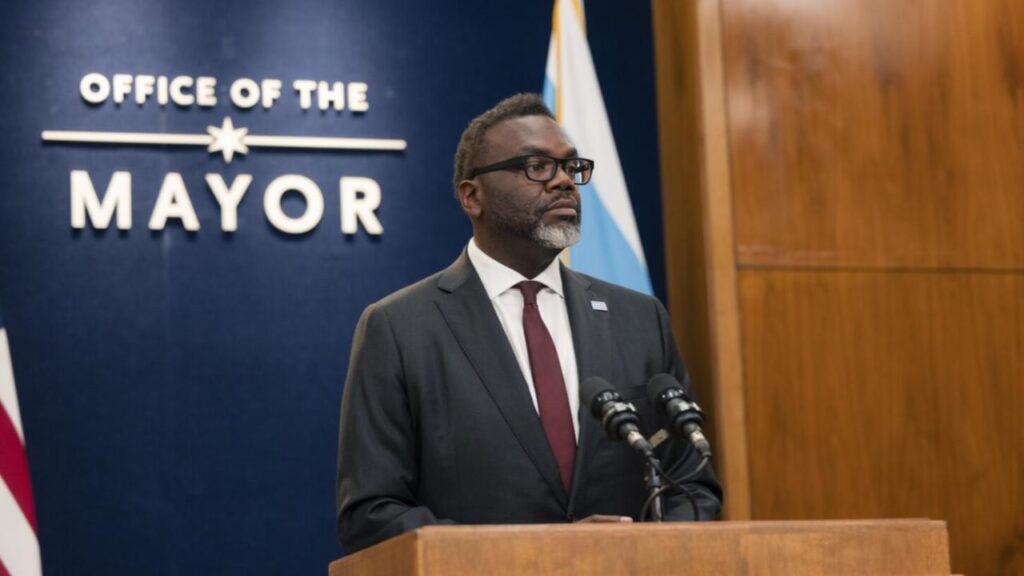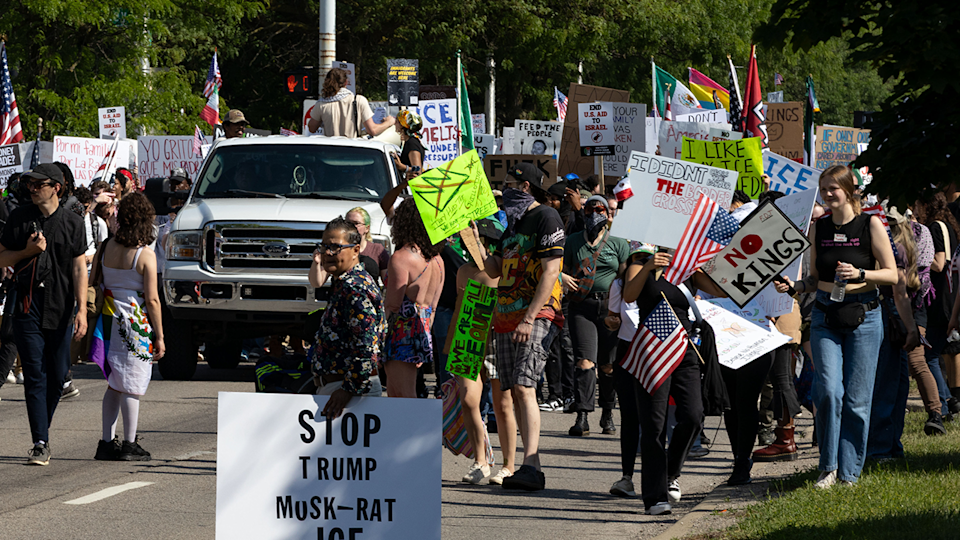Chicago is bracing for a political and constitutional showdown. Mayor Brandon Johnson has issued a stern warning to former President Donald Trump over reported plans to deploy federal agents or military forces to sanctuary cities, including Chicago, as part of a sweeping immigration crackdown. The move, Johnson argues, would not only violate the Constitution—it would destabilize communities and erode public trust.

Chicago on Edge: Mayor Johnson’s Fierce Warning to Trump
| Takeaway | Stat |
|---|---|
| Migrants received since Aug. 2022 | 51,000+ |
| Proposed ICE deportation target | 3,000 arrests/day |
| Active lawsuits opposing federal deployment | 5+ in major cities |
Mayor Johnson’s fierce stance has drawn a line in the sand. If Trump’s immigration strategy goes forward, Chicago is ready to meet it in the courts, in the streets, and through policy. The next few weeks could reshape how sanctuary cities operate—and how far federal power can reach.
Trump’s Plan Sparks Alarm in Sanctuary Cities
According to sources close to the Trump campaign, the former president is eyeing a multi-city strategy that could include ICE raids, National Guard deployments, and federal asset use under the controversial Insurrection Act. Trump’s team is reportedly targeting so-called “Democrat-run” sanctuary cities like Chicago, Los Angeles, and New York.
A senior Trump advisor put it bluntly: “If Chicago doesn’t want to cooperate, we’ll make them.”
The language has sent shockwaves through local governments, civil rights groups, and immigrant advocates. In Chicago, the city’s legal and community response machine is already in motion.
“We’re Not Backing Down,” Says Johnson
Mayor Johnson’s tone has grown more defiant with each new headline. At Sunday’s press conference, he stood shoulder to shoulder with immigration attorneys, community leaders, and city officials.
“We are exploring every legal remedy to stop unauthorized federal actions,” said Mary Richardson-Lowry, the city’s Corporation Counsel.
Chicago officials are also ramping up “Know Your Rights” trainings, expanding legal aid for immigrants, and partnering with community groups to resist federal overreach. In the mayor’s words, “this city will rise up—peacefully, boldly, and lawfully.”
Nationwide Protests, Legal Clashes Mount
Chicago is not alone in its resistance. In Los Angeles, more than 2,000 National Guard troops and 700 Marines were deployed earlier this month following clashes between immigration activists and federal agents. The city immediately filed a lawsuit, calling the deployment unconstitutional.
Demonstrations have erupted in New York, Philadelphia, and Seattle under the growing “No Kings” movement—an anti-authoritarian protest network advocating for immigrant protections and police accountability.
California Governor Gavin Newsom, Illinois Governor JB Pritzker, and others have vowed to fight any attempt by the federal government to override local governance without due process.

Constitutional Stakes Are High
Legal scholars are divided over Trump’s ability to unilaterally deploy military or ICE forces under the Insurrection Act. Critics argue such a move would be a massive overreach, while Trump’s team insists the law grants him sweeping authority in times of civil unrest.
As someone who’s reported on the 2020 protests and their legal aftermath, I’ve seen how these gray areas in federal law can lead to chaotic, even dangerous, confrontations. Cities like Portland and Washington, D.C., saw how quickly a “security response” could spiral.
What It Means for Everyday Chicagoans
For many Chicagoans, the fear is real. Nearly 1 in 5 residents in some neighborhoods are immigrants, many of whom rely on city services that could be disrupted by ICE activity or federal interference. Johnson emphasized that Chicago’s “Welcoming City” ordinance—which restricts local cooperation with ICE—remains firmly in place.
Community groups are encouraging residents to stay calm, know their rights, and participate in organized resistance. “We’re not just fighting for policy—we’re fighting for our neighbors,” said Cecilia Martinez, a Pilsen-based community organizer.
Social and Political Implications
The conflict is shaping up to be a major campaign flashpoint. Trump’s tough-on-immigration message is playing well with his base, while Democrats are trying to thread the needle between constitutional defense and public safety concerns.
This is about more than Chicago—it’s about federalism, the limits of executive power, and the future of immigration in America.






